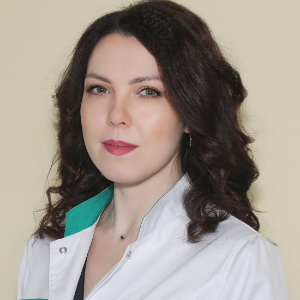Title : Immune responses to inactivated vaccine against COVID-19 (CoviVac) in adults’ individuals
Abstract:
Coronavirus disease 2019 (COVID-19), caused by severe acute respiratory syndrome coronavirus 2 (SARS-CoV-2), has spread extremely quickly around the world, leading to medical and economic crises. Vaccination against SARS-CoV-2 infection is considered an effective preventive measure to combat this pandemic. The aim of this study was to investigate the specific features of immune responses in adults’ individuals vaccinated against COVID-19 with "CoviVac".
The study included 120 people aged 18 to 60 with no medical history of COVID-19 coronavirus infection. At the first visit, the inclusion criteria for vaccination were analyzed, including physical examination; HIV, HBV, HCV (Alisei Q.S, Radim, Italy); complete blood count (CBC) (Mythic 18, ORPHEE SA, Switzerland); biochemical analysis (alanine aminotransferase, aspartate aminotransferase, glucose, creatinine, total protein, C-reactive protein, urea, uric acid, bilirubin fractions, total cholesterol (TC), TC high (HDL) and low (LDL) density, triglycerides, alkaline phosphatase, ferritin, serum iron CA-800, FURUNO, Japan)) and a rapid test for the detection of immune globulins (Ig) of G and M-class to SARS-CoV-2 (Ameda, Austria). The two-stage vaccination with the inactivated whole-virion vaccine "CoviVac" (intramuscularly into deltoid muscle with 14 days’ interval) was carried out on 88 adults correspond all the inclusion criteria and had no contraindications. The local adverse effects were pain, indurations and hypersensitivity at the injection site in the most participants. Some of people have fatigue or malaise, pain/sore throat. CBC, blood biochemistry, test for anti-SARS-CoV-2 IgG antibodies by ELISA ((Vector Best, Russia) were carried out during the follow-up visits (14, 35, 113, 173 days after the first stage vaccination). Additionally, during all visiting participants were testing for SARS-CoV-2 infection by PCR in nasopharyngeal swabs.
Eight out of 88 vaccinated participants during the study had COVID-19. All patient’s had mild form infection (fever, cough, loss of smell and impaired taste). The preliminary immunological activity of the vaccine at day 35 was 32.3%, at day 113 (±7) - 64.9%, 173 (±7) – 34,92%. The effectiveness of the "CoviVac" at 113 (±7) day was 90.9%, at 173 (±7) – 87.5%. There were no observed clinically significant deviations of blood biochemical parameters from their normal values both before and after vaccination. The studied inactivated vaccine "CoviVac" has shown a sufficient level of safety, immunogenicity and effectiveness.



